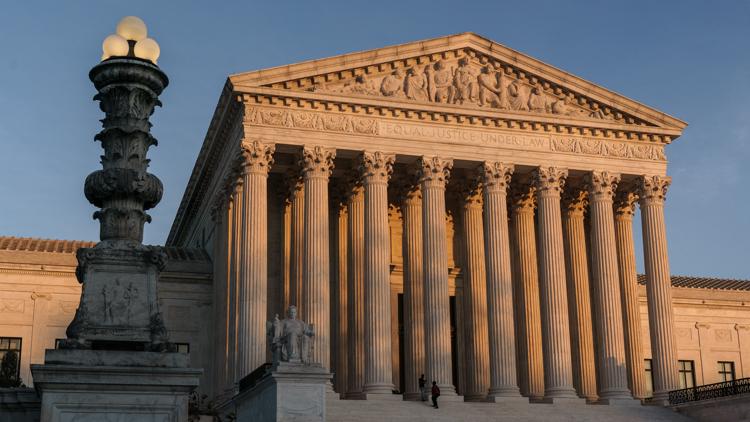
Breaking news from Washington: The Supreme Court’s decision on new regulations regarding sex discrimination in education has sparked controversy and debate across the nation.
In a close 5-4 vote, the court kept on hold regulations related to protections for pregnant students, students who are parents, and the procedures schools must follow in handling sexual misconduct complaints. The dissenting vote came from conservative Justice Neil Gorsuch, who joined the three liberal justices in opposition.
While the most debated regulations concerning protections for transgender students were not part of the administration’s appeal to the Supreme Court, they remain blocked in 25 states and numerous schools and colleges due to lower court orders.
With the rules taking effect in some parts of the country on August 1, the rights of transgender individuals, especially young people, have become a focal point in the political landscape. The clash over gender-affirming health care for transgender minors and bathroom access policies in schools and sports competitions continues to escalate.
President Joe Biden’s administration attempted to address some of these issues by implementing a regulation under Title IX to protect LGBTQ+ students’ rights. After two years of development and a record number of responses, the rule prohibits the differential treatment of transgender students, including restrictions on bathroom access.
The enforcement of Title IX remains a contentious issue, with federal courts ruling against its implementation in several states. The Supreme Court majority chose not to challenge these lower court decisions, impacting the enforcement of various provisions within the new rule.
Justice Sonia Sotomayor expressed dissent, criticizing the broad scope of the lower court orders in preventing the government from enforcing certain rule provisions unrelated to the specific challenges raised in the case.




